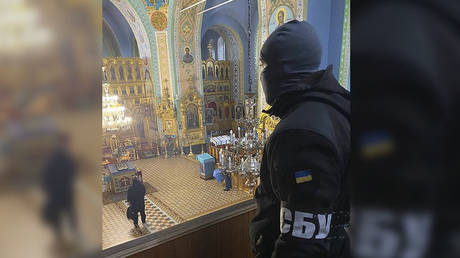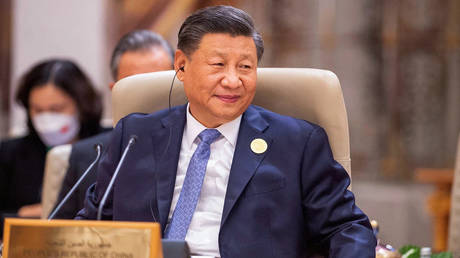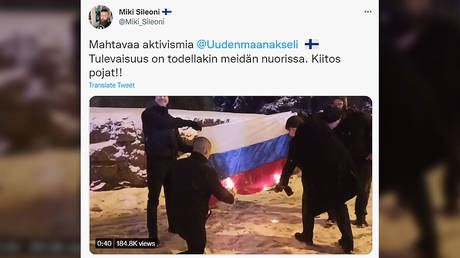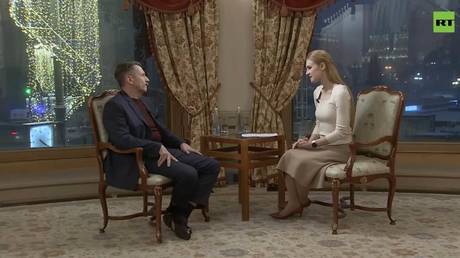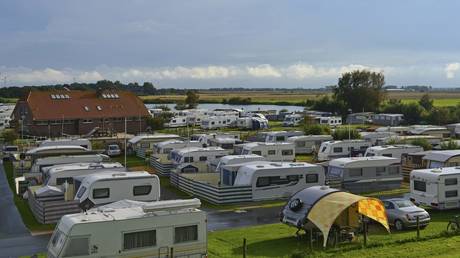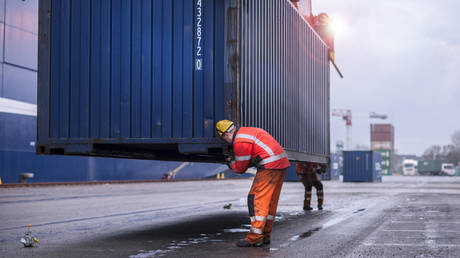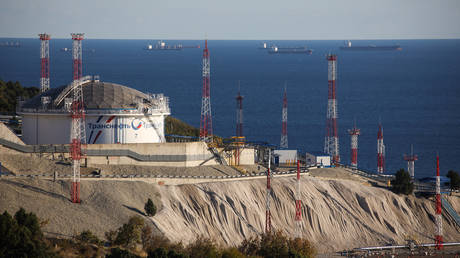Can Europe survive without Russian gas?
The Russia-Ukraine crisis could cause an energy crisis in Europe if Russian energy imports are halted Read Full Article at RT.com
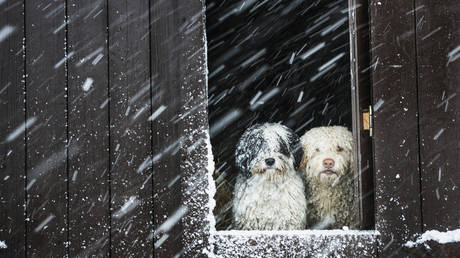
Europe will need to find alternative natural gas supplies to avoid crisis if Russian energy is sanctioned
The US and the European Union are threatening Russia with sweeping sanctions in the event of a military conflict with Ukraine. These could include Russian exports of oil, natural gas, and raw materials. However, experts warn that such measures would backfire on Europe, depriving the continent of Russia’s natural gas supplies and other commodities. With gas prices already sky-high, storages at multiple year-lows, and spring warmth still weeks away, Europeans might have to seek alternative suppliers to heat and light their homes.
- What could halt Russian gas supplies to Europe?
Washington has threatened Russian businesses, energy companies, and even President Vladimir Putin personally with sanctions if Russia makes an offensive move against its neighbor. The Biden administration has also been pressuring EU partners to block the certification of the newly built Nord Stream 2 gas pipeline, which could have remedied the starving European gas market with its 50 billion cubic meters of gas annually. Moscow has not made any declarations regarding closing the taps on Europe, and major energy exporter Gazprom has been pumping gas in accordance with existing contracts. Russian gas flows have shrunk in recent months, prompting some Western analysts to claim that Russia could use its gas as leverage in response to sanctions. - Would Russia cut off gas supplies to Europe?
This is highly unlikely, unless new sanctions target Russia’s ability to get paid for its exports. Europe remains the most profitable market for Russian gas. In 2020, Russia delivered 175 billion cubic meters of gas to the continent, much more than to its second-largest market, Asia-Pacific. Russia would not put its key source of revenue at risk. Gas flows from Russia to Europe were not interrupted even at the height of the Cold War. In fact, historically, energy supplies stopped only once – during Hitler’s invasion of the Soviet Union during WWII. However, supplies could be stopped by Western sanctions themselves – for instance, if Russia is cut off from the SWIFT payment system. - Why is SWIFT so critical?
SWIFT is the main global provider of secure payments and bank transfers. Think of it as a credit card for individuals and countries. Without SWIFT, most countries which use the payments network cannot pay for Russian energy supplies, and Russia has no way of receiving the funds. Since we are talking about multibillion-dollar transactions, and containers of cash are out of the question, it is very difficult to find an alternative way to do business. Western banks would have to send money to Russia’s neighbors, and then the funds would have to be transferred to Russia through the Russian payment system SPFS. This would deal a huge blow to the entire global economy and make large transactions with Russia virtually impossible to carry out. However, disconnecting Moscow from SWIFT would not only hurt Russia, but Europe and other countries as well, since it would effectively cut off the West from Russian energy supplies. - How badly does Russia need the European market?
Although, as previously noted, Europe is a key source of revenue, the country could survive without it. Russia could find other suitors for its gas in Asia. As of November 2021, shipments through the Russian gas pipeline to China, the Power of Siberia, exceeded 13 billion cubic meters, which is over three times their volume in 2020. Japan and South Korea also purchase significant amounts of Russian liquefied natural gas (LNG) from the Arctic. In the future, India could become a potentially huge market for Russian gas. - Why does Europe need Russian gas supplies?
More than half of the EU’s energy needs (61%) are met by imports, according to Europe’s statistics agency. Russia is the main EU supplier of natural gas, accounting for over 46% of gas imports as of the first half of 2021. Most of the gas comes via the Yamal-Europe pipeline, which connects the EU with Russian gas fields through Ukrainian territory. If Russia closes the taps due to sanctions, or if the gas flow is disrupted due to some infrastructure damage resulting from a hypothetical conflict in Ukraine, Europe would lose the bulk of gas supplies – which are difficult, if not impossible to replace on short notice. This would propel gas prices, which nearly doubled last year, to new record highs. - What other gas suppliers does Europe have?
According to Eurostat, apart from Russia, the EU gets its gas from Norway (20.5%), Algeria (11.6%), the United States (6.3%) and Qatar (4.3%), as well as some other states whose combined share is a little over 10%. However, Norway has been unable to meet the demand throughout 2021, with North Sea fields undergoing heavy maintenance after pandemic-induced delays, while other suppliers have too small a share in the European gas market at their current volumes to make a difference in case of a flow disruption. - Can other suppliers cover the shortfall in Russian gas supplies?
The US administration has reportedly been in talks with Qatar on the possibility of increasing LNG shipments to Europe, but so far to no avail. Experts cited by Bloomberg say Qatar is already producing at full capacity, and most of its cargoes are sent to Asia under long-term contracts, which it can hardly break for fear of losing the valuable market. Even if the US finds a way to boost LNG deliveries to Europe, energy prices would jump nonetheless, as US LNG is more expensive than Russian natural gas. Algeria may have spare production and pipeline capacity to boost supplies to Europe if called upon, a government source, who spoke on condition of anonymity, told S&P Global Platts on Tuesday. Those could be delivered as LNG or via Algeria's direct pipelines to Spain and Italy, the source said. However, no official reports regarding the matter have been issued, while Algeria’s major pipeline linking it to Europe via Morocco was shut down last year. - What are Europe’s alternatives to gas as an energy source?
Europe has a number of alternative energy sources, but none of them could be called upon to substitute for natural gas. The EU’s decision to turn to weather-dependent sources of energy like wind and solar power over ‘dirty’ fossil fuels has already, at least in part, led to the current energy crisis. Coal has also soared in price, as Europe, China, and others have been looking for alternatives to gas amid the global pandemic crisis in recent months. Finally, Europe (with the exclusion of France) has been shutting down another crucial source of energy – nuclear power plants – amid its push to phase out atomic energy after the Fukushima nuclear disaster in 2011. The plants can still be salvaged if the recently proposed draft bill to label nuclear energy as ‘green’ comes through, but both the bill and the revival of the closed plants, as well as the construction of new ones, will take time, which Europe does not have.
For more stories on economy & finance visit RT's business section








